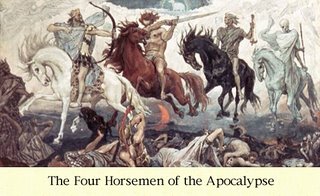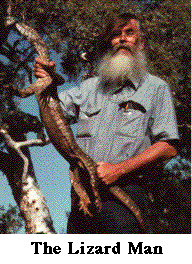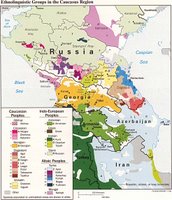
I have been listening to a
series of podcasts/radio programs presenting Orthodox Christian views on the End Times as preached by various Protestant figures. One of the striking things the hosts, Steve Robinson and Bill Gould, present is the recurrence of specific predictions of the End of the World throughout church history. Also striking are the huge sales of the “
Left Behind” series of novels based upon one interpretation of the Book of Revelation.
Indeed, these eschatologies are not confined to Christianity. Messianic speculation has been rife among the Jews, leading to false Messiahs such as
Sabbatai Zevi or Shabtai Tzvi,
Jacob Frank, and more recently the deceased Lubavitcher Rebbe,
Menachem Schneerson, whom
some in that group consider to be the Messiah. Twelver Shi’ites pine for the return of the
Twelfth . Norman Cohn has written a well-known
study of mediaeval and Reformation millenial movements.
Although this subject has its humor, and certainly provides fodder for the sneers of knowing ones, it is not confined to religious circles.
 Eric Pianka
Eric Pianka is a biology professor at the University of Texas, Austin, who advertises himself as “The Lizard Man.” He has indeed published extensively on the varieties, habits and ecology of lizards in
Australia and elsewhere.
It is not Professor Pianka’s herpetology that causes us to mention him here, but his secular eschatology, which has earned him
denunciation on the Internet as “Doctor Doom.”
Pianka gave a speech at the Texas Academy of Sciences, which presented him with an award shortly thereafter. The speech kicked up an uproar, at least in the blogosphere, notably fueled by the denunciations of one Forrest Mims, and William Dembski, who are apparently associated with the “intelligent design” movement. Supposedly threats of various kinds ensued, as did explanatory statements by the Texas Academy of Science and Pianka himself. Wikipedia
posted a summary article on these aspects of the controversy, sufficiently detailed that I need not delve into those details here. What interests me is the eschatology and the moral stances in the speech, of which what claims to be a partial transcript is posted
here. In essence, Pianka combines the neo-Malthusian concept that human population is growing out of control with the “deep ecology” concept that human activity is destroying habitats and species of intrinsic value. Pianka’s view is that human population growth is a kind of environmental cancer, that if our population were about 10 per cent of its present size the earth would be better off, and he expects pandemic disease (of which he uses the Ebola virus as an example) to carry out the necessary pruning.
Here’s a sample:
But anyway, he [Meadows, in The Limits to Growth] estimated that we crossed the maximum number of humans the earth could support back about 1978. But up until then we could have eased into a sustainable world, but now we're 20% above.
I think it’s actually much worse than that. We could not have reached six and a half billion if it weren’t for fossil fuels, to do agriculture and feed the hordes of humans around the earth. And the fossil fuels are running out. So I think we might have to cut back to, say, two billion, which would be about one-third as many people.
This is an old figure from the Meadows 1992 Beyond the Limits book and you are here in 1999 – we’re actually out here now. We’re starting to experience the world oil crash, and you know that every time you fill up your car.
Here’s the most optimistic projection: Is we don’t have a collapse.
But here’s what’s gonna happen. And after the human population collapses, there’s going to be a lot fewer of us. Food’s going to be diminished. Pollution’s going to go down, which will be good. But there’s not going to be much to recover from. Our descendants are going to curse us for the party we took, the party we had, and I really recommend Richard Heinberg’s book the [sic]Party’s Over: Oil, War, and the Fate of Industrial Societies. This man has thought about these things deeply.
In essence, Pianka’s message is similar to Al Gore’s in
An Inconvenient Truth: human activity, especially the activity of industrial socities, above all our own, threatens the survival of the planet. In Pianka’s case, he also urges a kind of “salvage ecology”--that scientists should go out and study habitats that are disappearing, because once gone, they will be gone forever.
There is, of course, considerable evidence that our stewardship of the planet has been less than wise. Among these are mass extinctions, deforestation and desertification, destruction of aquifers and bodies of water such as the Aral Sea, worldwide oceanic pollution and the collapse of fish populations. It is also certainly possible that our respite, since 1919’s influenza pandemic, from worldwide pandemics, is temporary, especially as failed states multiply.
Events of this type are nothing new. When the American Indians reached the New World, a mass extinction of large mammals occurred, and over time ecosystems developed in many areas that were “pyrophytic,” that is, depended upon being regularly burnt over. The rise of irrigation in Mesopotamia was accompanied by the accumulation of salt in irrigated areas, leading to sterility and collapse, evidenced by the increasing proportion of salt-resistant crops in dated pollen samples. And yet such changes are not always negative. For example, the area of second-growth forest in New England is greater now than it was 150 years ago, when small farms were much more common than they are now, in an age of cheap transportation.
Nor is it clear what the future of demography will be. Some societies’ “demographic transition” has involved not only a decline of fertility to replacement value, but a plunge below that (Japan, Russia, Spain, etc.).
Although these issues and their details are too complex for extended treatment on this post, they do suggest that Pianka’s picture of unrelieved gloom reproduces in secular terms the millenialism of the religious faithful. There is a strange attraction to eschatology even among those who speak in purely secular terms. What is lacking in their world view is not so much a sense of human fallenness and a premonition of human doom, but any sense that human redemption is possible, or any sense that the mass deaths of human beings are more to be regretted than the loss of lizard habitat.




















